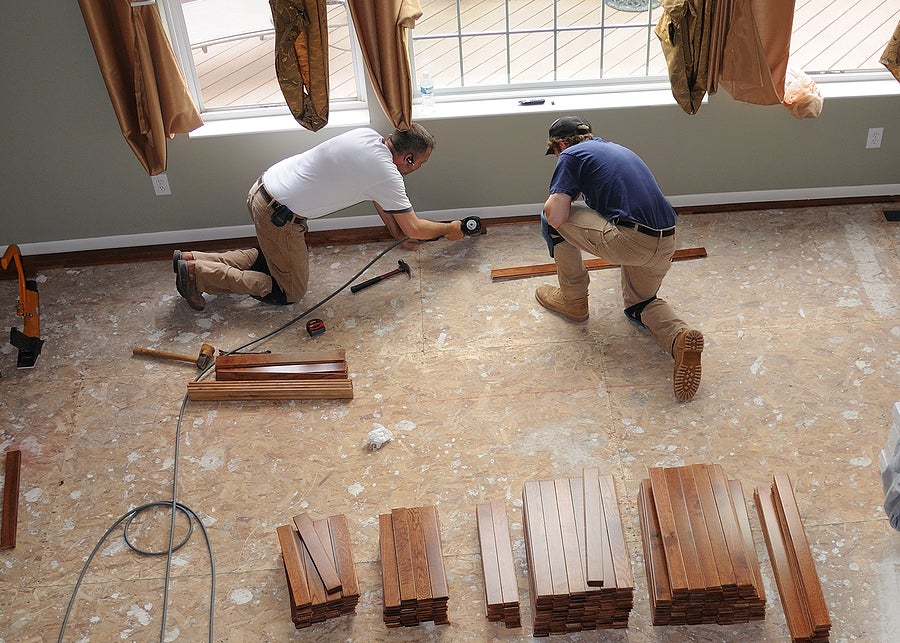
If you’re considering renovating your home, it’s essential to create a budget and stick to it. Having a budget will help you manage your finances and avoid overspending. Not only that, but it will also help you set realistic expectations for your renovation project.
This blog post will discuss tips for creating a home renovation budget that works for you. We’ll also provide examples of how to allocate your budget depending on the renovation you’re planning. Let’s get started!
1. Prioritize Your Remodeling Needs
Like most homeowners, you probably have a long list of home improvements you’d like to make. But not all home renovation projects are created equal — some are more necessary than others, and some will impact your home’s value more than others.
So how do you prioritize your home renovation projects? Start by making a list of all the improvements you’d like to make, both big and small, and group them into three categories:
- Must-haves: These are necessary projects for safety reasons or to bring your home up to code.
- Nice-to-haves: These are projects you’d like to do but aren’t necessary.
- Luxuries: These are the projects that you’d love to do but aren’t essential and can be put off for a later date.
Once you’ve categorized your projects, start putting them in order of priority. The must-haves should be at the top of your list, followed by the nice-to-haves and the luxuries.
Of course, you can put off even must-have projects if they’re too expensive or you don’t have a budget for them. That’s why creating a realistic budget for your home renovation is essential before you start.
Once you have your remodeling priorities, take a break and check out https://parimatch.in/en/football/live to bet online to cool down before creating a remodeling plan. At Parimatch, we offer various sports betting as well as casino games and poker.
2. Create a Remodeling Plan
The next step to creating your home renovation budget is to develop a remodeling plan. This will give you a clear idea of your project’s scope and help estimate costs. To create a remodeling plan, start by listing the areas of your home that you want to renovate.
Once you have your list, research the estimated costs of each project and create a budget accordingly. Most importantly, your budget should cover the cost of materials and labor. That way, you’ll be one step closer to renovating your home on a budget.
3. Research and Ask Questions
Now that you know what you want to do, it is time to start researching the costs. A quick Google search can give you a general idea of how materials will cost. You can also visit your local hardware store or contact a contractor. Again, don’t forget to factor in labor.
If you plan on doing any of the work yourself, research how much it will cost to rent the necessary equipment. Otherwise, you will need to factor in the cost of hiring a professional. Once you have a better idea of the costs, you can create a budget — be sure to leave some wiggle room in your budget for unexpected costs.
4. Outline Cost Estimates
After extensive research, you’ll need to get cost estimates for every aspect of your renovation. This includes materials, labor, permits, and anything else you can think of. Once you have a good idea of the overall cost, you can start to create your budget.
One way to get cost estimates is to reach out to contractors in your area — they should be able to give you a good idea of what it will cost to complete your project. You can also look online for materials and compare prices between different retailers.
5. Shop Around for the Best contractors
To get the best deals on your home renovation, it’s important to shop around for the best contractors. Multiple bids are a great way to ensure you get the best project price, but you should first check references and reviews before hiring any contractor.
Another great way to save money on your home renovation is to do some work yourself. If you’re handy with tools, painting, or other home improvement projects, doing some of the work can save you a lot of money.
However, be sure to take on only projects you’re confident you can complete safely and correctly. Otherwise, you may end up spending more money to fix mistakes.
6. Factor Roi Into Budget-Building
Whether you’re planning to sell your home soon or simply want to enjoy its fruits for years to come, it’s essential to factor in ROI (return on investment) when creating your home renovation budget. Even small projects can add up quickly, so consider each project’s financial and emotional costs before starting.
7. Consider Financing Options
Several financing options are available for home renovations, including personal loans, home equity loans, and lines of credit. So, it’s best to contact your financial institution to see the options available and compare interest rates, terms, and fees before deciding.
Bottom Line
If you’re planning a home renovation, the bottom line is that you’ll need to create a budget. This can seem daunting, but it’s not as difficult as you think — the tips above will help you get started.

